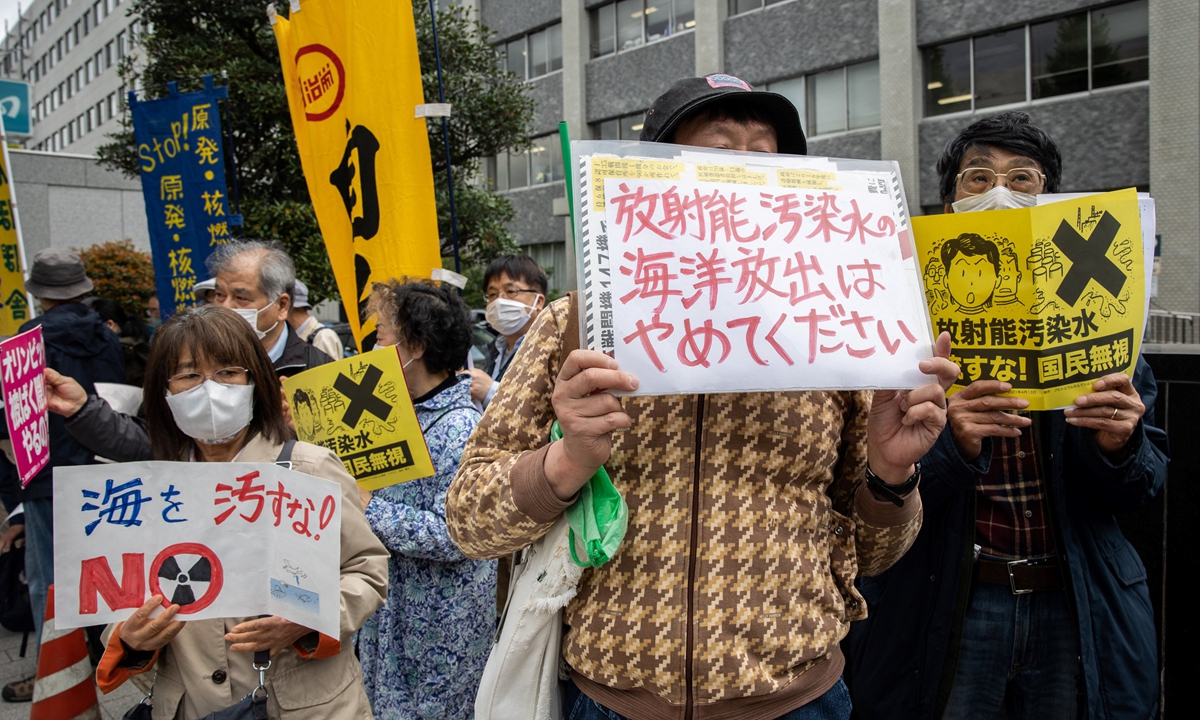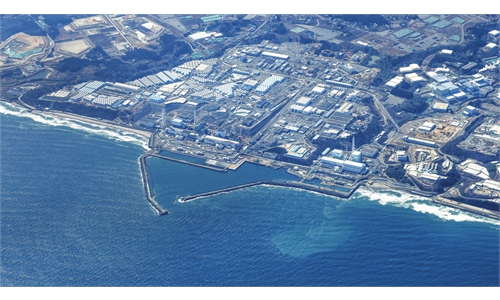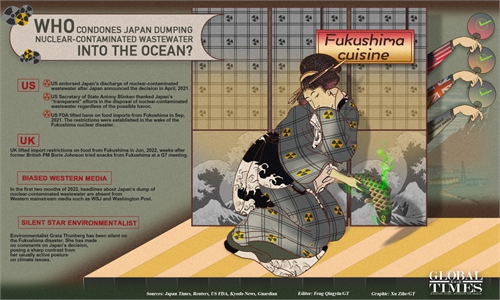Papua New Guinea fisheries minister strongly opposes Japan's plan to dump nuclear-contaminated water

Demonstrators hold slogans during a protest against the Japanese government's plan to dump more than 1 million tons of nuclear contaminated water from the stricken Fukushima nuclear plant into the ocean, outside the prime minister's office in Tokyo on April 13, 2021. File Photo: AFP
Most Pacific islands will not survive if marine resources are contaminated by Fukushima nuclear-contaminated water that Japan plans to dump into the sea, Jelta Wong, Papua New Guinea's minister for fisheries and marine resources, told the Global Times via email on Thursday.
"If the wastewater is harmless and safe as stated by Tokyo Electric Power Company Holdings Inc (TEPCO), why doesn't Japan utilize the water on its own land? Why should we be the victims of circumstance for superpowers who use these methods to improve their lives?" Wong said.
China, along with other neighboring countries such as South Korea, Russia, and Pacific Island countries, have repeatedly expressed opposition and concerns to Tokyo after it decided to begin releasing the water sometime this spring or summer.
China and Russia have provided a joint list of technical questions to Japan, which failed to provide proper answers.
"Also, the scientific data is sketchy. They are saying that the radiation will not be fully eradicated. This means that some marine life can be affected. Are we willing to take that risk? Short answer is no," Wong said.
A delegation from the Pacific Island Forum went to Japan to discuss the issue in February, and Wong said the delegation made an attempt to discourage Japan but it has fallen on deaf ears and Japan still intends to go ahead with the plan.
The Pacific region should not be a dumping ground, Wong said, adding that Japan's plan could affect future generations.
A New Zealand-based sociologist previously called on Japan to stop nuclear colonialism against less geopolitically powerful countries. "TEPCO and the Japanese government are showing direct disregard for the sovereignty and self-determination of Pacific peoples, as they depend upon the ocean for their livelihoods and wellbeing," said the sociologist.


